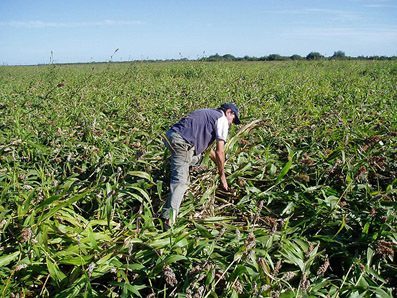 The relationships in natural ecosystems between living beings are not homogeneous. If two individuals of different species interact in a satisfactory way for both, the phenomenon of mutualism occurs. It could be affirmed that the relationship that is established is like a pact in which each one provides the other with some adaptive advantage or of any other type.
The relationships in natural ecosystems between living beings are not homogeneous. If two individuals of different species interact in a satisfactory way for both, the phenomenon of mutualism occurs. It could be affirmed that the relationship that is established is like a pact in which each one provides the other with some adaptive advantage or of any other type.
Consequently, it is a reciprocal relationship that is positive for two different living beings, because with the bond they create, the chances of survival are increased in some sense.
Types of mutualism
The symbiotic is a form of "alliance" in which two different individuals physically interact and this forces them to remain united in order to survive. An example of this version would be that of birds that are placed on the back of some mammals (the bird feels protected and in return eliminates some parasites from the protective animal).
The asymbiotic is that two organisms lead separate lives, but each depends on the other to survive. The typical example is the one that occurs between insects and flowers in the pollination process.
There is also trophic mutualism, which consists of the collaboration between two organisms to obtain food. Defensive mutualism is based on the idea of getting food or protection in exchange for some form of defense. Finally, the dispersive type aims to exchange food for transport.
Other forms of symbiotic relationships and their extrapolation to human relationships
 Commensalism between living beings occurs when one organism achieves a specific benefit, but the other does not get anything in return (for example, when birds create their nests in trees, they do not benefit in any way).
Commensalism between living beings occurs when one organism achieves a specific benefit, but the other does not get anything in return (for example, when birds create their nests in trees, they do not benefit in any way).
In parasitism there is an unequal relationship, as one organism achieves something and the other is harmed.
Predation in the wild is based on a basic principle: a predator hunts prey to survive.
The concepts of mutualism, commensalism, parasitism and predation are applicable in some way to other living beings, humans.
In this sense, we are complex animals, since we practice mutualism when we cooperate selflessly with one another, commensalism when we exploit the abilities of others for our benefit, parasitism when we live directly from others and become social parasites, and predation when we eliminate or kill other individuals for a specific purpose.
Photos: Fotolia - beara / busenlilly666









